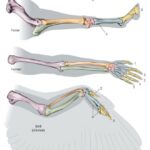Comparative and superlative adjectives are essential tools in the English language for describing differences and rankings. Understanding how to use them correctly will significantly enhance your writing and speaking skills, allowing you to express yourself with greater precision and nuance. This guide will break down the rules of comparative and superlative grammar, providing clear explanations and examples to help you master this fundamental aspect of English grammar.
Understanding Comparative Adjectives
Comparative adjectives are used to highlight the difference between two nouns. They answer the question: “Which one is more…?” The basic structure for using comparative adjectives is:
Noun (Subject) + Verb + Comparative Adjective + than + Noun (Object)
The word “than” is crucial as it signals a comparison is being made. Let’s look at some examples to illustrate this:
- My car is faster than my bicycle.
- This book is more interesting than the last one I read.
- Summer days are longer than winter days.
- She is taller than her brother.
In each of these sentences, we are comparing two nouns (car and bicycle, book and last book, summer days and winter days, she and her brother) and using a comparative adjective to show the difference between them.
Sometimes, the second noun in the comparison is implied or understood from the context.
- I like chocolate more. (than vanilla, for example, is understood)
- He performed better. (than he did previously, is understood)
Understanding Superlative Adjectives
Superlative adjectives take comparison to the next level. They are used to describe a noun that is at the extreme end of a quality – either the most or the least. Superlatives compare a noun to a group of nouns, indicating the highest or lowest degree of that quality. Think of superlatives as answering the question: “Which one is the most…?” or “Which one is the least…?” The structure for superlative adjectives is:
Noun (Subject) + Verb + the + Superlative Adjective + Noun (Object/Group)
Notice the use of “the” before the superlative adjective. This definite article is essential as it specifies that we are talking about the ultimate degree of the quality within a group.
Here are some examples to clarify:
- Mount Everest is the highest mountain in the world.
- This is the most delicious cake I have ever tasted.
- He is the fastest runner in our school.
- January is the coldest month of the year.
In these examples, we are comparing one noun to a group: Mount Everest to all mountains in the world, this cake to all cakes tasted, he to all runners in the school, and January to all months of the year. The superlative adjective pinpoints the noun with the extreme quality within that group.
Similar to comparatives, the group being compared can sometimes be understood from context.
- She is the best student. (in the class, is understood)
- This is the worst movie. (of all movies seen recently, is understood)
Forming Regular Comparative and Superlative Adjectives
The formation of comparative and superlative adjectives depends primarily on the number of syllables in the base adjective. Let’s explore the rules for regular adjectives:
One-Syllable Adjectives
For most one-syllable adjectives, we simply add -er for the comparative form and -est for the superlative form.
| Adjective | Comparative | Superlative | Example Sentence |
|---|---|---|---|
| Tall | Taller | Tallest | He is taller than his sister. / She is the tallest girl in her class. |
| Short | Shorter | Shortest | This route is shorter than the highway. / This is the shortest way to the station. |
| Fast | Faster | Fastest | A cheetah is faster than a lion. / The Ferrari is the fastest car. |
| Old | Older | Oldest | My brother is older than me. / This is the oldest building in town. |
Spelling Note: If a one-syllable adjective ends in a consonant-vowel-consonant pattern (except for w, x, y), double the final consonant before adding -er or -est.
| Adjective | Comparative | Superlative | Example Sentence |
|---|---|---|---|
| Big | Bigger | Biggest | An elephant is bigger than a horse. / That’s the biggest elephant I’ve ever seen. |
| Hot | Hotter | Hottest | July is hotter than June. / August is usually the hottest month. |
| Fat | Fatter | Fattest | This cat is fatter than my last one. / He is the fattest man in the village. |
Two-Syllable Adjectives
For two-syllable adjectives, the rules are slightly more flexible.
- Option 1: -er and -est endings: Many two-syllable adjectives, especially those ending in -y, -ly, -er, or -ow, can take the -er and -est endings. For adjectives ending in -y, change the y to i before adding the ending.
| Adjective | Comparative | Superlative | Example Sentence |
|---|---|---|---|
| Happy | Happier | Happiest | She is happier now than before. / This is the happiest day of my life. |
| Simple | Simpler | Simplest | This explanation is simpler to understand. / This is the simplest solution. |
| Friendly | Friendlier | Friendliest | She is friendlier than her colleague. / He is the friendliest person I know. |
- Option 2: more and most: Alternatively, and for many other two-syllable adjectives, you can use more for the comparative and most for the superlative. This is often considered safer if you’re unsure.
| Adjective | Comparative | Superlative | Example Sentence |
|---|---|---|---|
| Careful | More careful | Most careful | Please be more careful next time. / He is the most careful driver I know. |
| Modern | More modern | Most modern | This building is more modern than that one. / This is the most modern art museum in the city. |
General Guideline: If you are unsure whether to use -er/-est or more/most for a two-syllable adjective, using more/most is generally acceptable and grammatically correct.
Three or More Syllable Adjectives
For adjectives with three or more syllables, always use more for the comparative and most for the superlative.
| Adjective | Comparative | Superlative | Example Sentence |
|---|---|---|---|
| Beautiful | More beautiful | Most beautiful | She is more beautiful than her sister. / This is the most beautiful painting in the gallery. |
| Intelligent | More intelligent | Most intelligent | Dogs are more intelligent than cats. (debatable!) / She is the most intelligent student in the class. |
| Expensive | More expensive | Most expensive | Traveling by plane is more expensive than by train. / This is the most expensive restaurant in town. |
| Important | More important | Most important | Education is more important than entertainment. / This is the most important meeting of the year. |
Irregular Comparative and Superlative Adjectives
Some common adjectives have irregular comparative and superlative forms that you simply need to memorize. These are frequently used words, so learning them is essential.
| Adjective | Comparative | Superlative | Example Sentence |
|---|---|---|---|
| Good | Better | Best | My health is better now than last year. / This is the best coffee I’ve ever had. |
| Bad | Worse | Worst | The weather today is worse than yesterday. / That was the worst movie I’ve ever seen. |
| Little | Less | Least | I have less money than you. / This is the least expensive option. |
| Much / Many | More | Most | I have more time now than I did last week. / She has the most books in our group. |
| Far | Farther / Further | Farthest / Furthest | London is farther from here than Paris. / That is the farthest star we can see. |
Mastering comparative and superlative adjectives is a key step in refining your English grammar. By understanding the rules and practicing their use, you’ll be able to express comparisons effectively and accurately, adding depth and clarity to your communication. Remember to practice and use these forms in your daily English conversations and writing to solidify your understanding.

